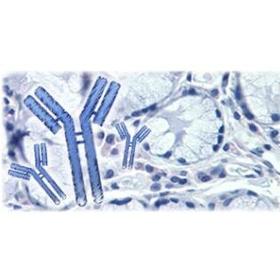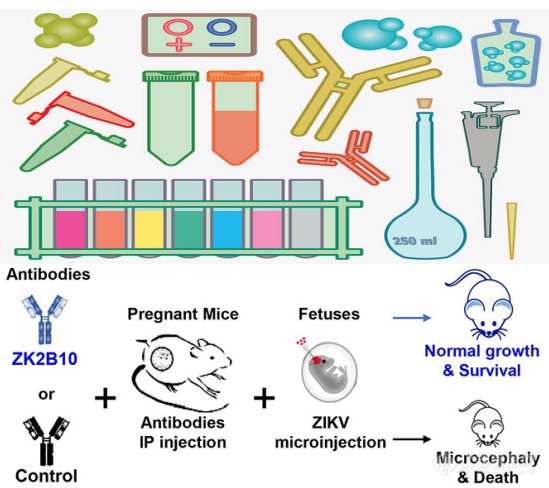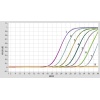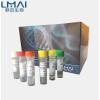
产品详情

磷酸化细胞信号转导分子SMAD5抗体
英文名称 phospho-SMAD5 (Ser463 + Ser465)
中文名称 磷酸化细胞信号转导分子SMAD5抗体
别 名 SMAD5 (phospho S463 + S465); p-SMAD5 (phospho S463 + S465); DKFZp781C1895; DKFZp781O1323; Dwfc; hSmad5; JV5 1; JV5-1; MAD homolog 5; MAD, mothers against decapentaplegic homolog 5; MADH 5; MADH5; Mothers against decapentaplegic homolog 5; mothers against decapentaplegic, drosophila, homolog of, 5; Mothers against DPP homolog 5; MusMLP; SMA and MAD related protein 5; SMAD 5; SMAD family member 5; SMAD, mothers against DPP homolog 5; Smad5; Smad5; SMAD5_HUMAN.
研究领域 细胞生物 发育生物学 信号转导 干细胞 生长因子和激素 转录调节因子 表观遗传学
抗体来源 Rabbit
克隆类型 Polyclonal
交叉反应 Human, Mouse, Rat, Dog, Pig, Cow, Rabbit, Sheep, Guinea Pig,
产品应用 WB=1:500-2000 ELISA=1:500-1000 IHC-P=1:400-800 IHC-F=1:400-800 ICC=1:100-500 IF=1:100-500 (石蜡切片需做抗原修复)
not yet tested in other applications.
optimal dilutions/concentrations should be determined by the end user.
分 子 量 52kDa
细胞定位 细胞核 细胞浆
性 状 Lyophilized or Liquid
浓 度 1mg/ml
免 疫 原 KLH conjugated synthesised phosphopeptide derived from human SMAD5 around the phosphorylation site of Ser463 + Ser465:IS(p-S)V(p-S)
亚 型 IgG
纯化方法 affinity purified by Protein A
储 存 液 0.01M TBS(pH7.4) with 1% BSA, 0.03% Proclin300 and 50% Glycerol.
保存条件 Store at -20 °C for one year. Avoid repeated freeze/thaw cycles. The lyophilized antibody is stable at room temperature for at least one month and for greater than a year when kept at -20°C. When reconstituted in sterile pH 7.4 0.01M PBS or diluent of antibody the antibody is stable for at least two weeks at 2-4 °C.
PubMed PubMed
产品介绍 The protein encoded by this gene is involved in the transforming growth factor beta signaling pathway that results in an inhibition of the proliferation of hematopoietic progenitor cells. The encoded protein is activated by bone morphogenetic proteins type 1 receptor kinase, and may be involved in cancer. Alternative splicing results in multiple transcript variants. [provided by RefSeq, Feb 2014]




